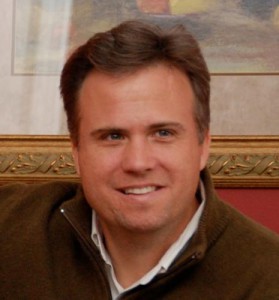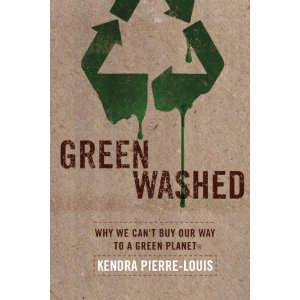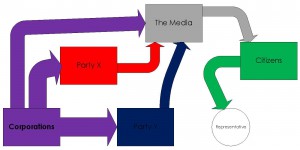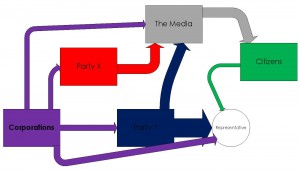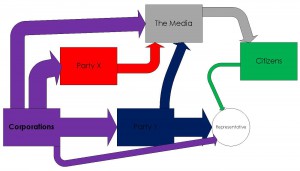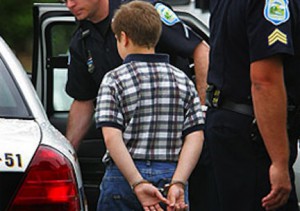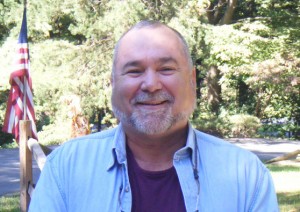The purpose of high school should be to prepare EVERY individual for further learning, whether it be inside the classroom or outside. The way I see it, there are 3 categories of learning that a student in K-12 ought to master in order to progress for further learning: creativity, critical thinking, and memorizing knowledge(I fail to find a term that encapsulates this idea in a more functional manner).
Creativity generally happens when one either A. Lacks the knowledge/experience about a subject to conform to standards set by experience from themselves or others, or B. Learns how to work in unintuitive, possibly “random” solutions to a given problem. Kids have an inherent advantage in this area because of a lack of life experience. Therefore, it is an ABSOLUTE MUST that kids be given creative expression from the time they are in Kindergarten all the way up through 12th grade. As they gain life experience they should be in the habit of thinking in creative ways, and further utilizing techniques for thinking creatively, some of which are described in Scott Thorpe's book “How to Think Like Einstein: Simple Ways to Break the Rules and Discover Your Hidden Genius”.
Next is critical thinking, which kids also have an advantage in age. However, unlike creativity, they are not born with the skills. Rather, they have to be taught how to think this way, and they need to learn and develop this skill to the point that it becomes second nature. There are various ways to do this, examples might be: mathematical word problems, analysis of literature or anything else you may derive open-ended questions from, even games like Chess or Sudoku. Creativity and critical thinking would show apparent connections by middle school if not earlier. It not only allows an individual to come up with an answer to a problem, but it challenges that individual to use logic to analyze and improve existing solutions to make them smarter and more efficient. Early grades can be focused in developing creativity and critical thinking individually to make them routine and intuitively utilized, while later grades can be focused on combining and using them together to come up with many possible creative, sound, rational ideas to a given complex problem.
Memorizing knowledge I don't believe should be a focus until at least 7th grade. This would only serve to discourage creativity and critical thinking among the younger kids by essentially being told “this is what smart people think so they must be correct”. 7th grade and beyond, kids can receive reading assignments and things of the sort that require them to obtain knowledge and combine it with creativity and critical thinking to build on what is already there. It is not necessary to reinvent the wheel, however you should know how it works first. This part of the learning would also require teaching how to find and discover information. By the time you graduate, you should know how to find information that you're looking for, use creative techniques to discover new ideas, and use critical thinking to logically apply the best ideas into the best solution possible.
The school system as it is today is about 90% memorizing knowledge, 10% critical thinking, and 0% creativity.(I say 0% because any positive gains made from the few artistic and creative classes out there are canceled out by the complete creative discouragement in other areas) It is an institution that is happy to dumb down the curriculum in order to achieve higher graduation rates and make it look like the school and teachers are succeeding. Teachers often try the best they can but get no support from parents, and when kids refuse to learn there is no recourse. Many parents are unable to support their children academically if they are low income and juggling full and/or part time jobs, some parents have made choices to abuse drugs or alcohol and are unable to handle that responsibility.
I believe the school system needs to be the responsibility of the community as a whole, community centers run by either volunteers or non-profits that connect with the teachers to help struggling students with either homework or a safe environment for those with a rough home life. Community centers can reach out and connect with parents and EVERYONE can be responsible for their children's education.
I'll briefly touch on the topic of college by saying that, tuition could possibly be paid for students in part or in full by taking scientific advancements made by a college, putting them in the public domain, and utilizing them to save money. The money saved by increased efficiency can serve to pay for college tuition to encourage further advancements. An example might be that a college figures out a method of filtering salt water into drinkable water, thus decreasing the cost of water by the government, and the excess funds saved by the new technique can be redirected towards college tuition. I have no clue about numbers on this but I'm thinking it could be at least partially viable and utilizing colleges for the public interest could be absolutely valuable in restoring our country and solving the problems it faces.
See Also:
